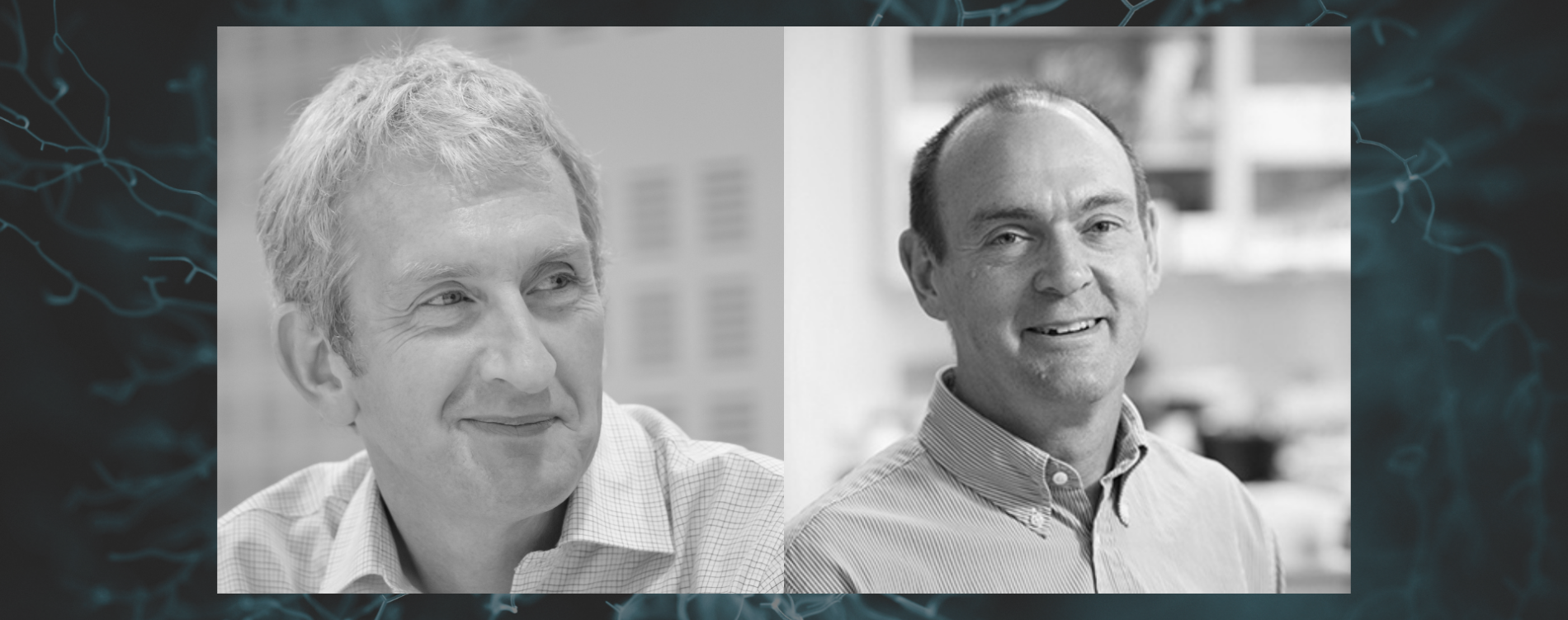Earlier this year, two outstanding researchers, Paul Fish, Ph.D., of University College London’s Drug Discovery Institute and Paul Worley, M.D., of Johns Hopkins University, were selected by the Alzheimer’s Drug Discovery Foundation (ADDF) and Harrington Discovery Institute at University Hospitals in Cleveland to receive ADDF-Harrington Scholar Awards. These awards include both funding and therapeutic development guidance from a team of industry experts to help advance their research toward therapies for patients.
The ADDF-Harrington partnership is designed to give researchers not just financial support, but also expert guidance on their research, which both Drs. Fish and Worley note is highly valuable when shepherding research from bench to bedside.
Dr. Fish points out that the panel of experts at the Harrington Discovery Institute complements his team’s internal skills and brings many years of drug discovery expertise to the table. “After just two joint project meetings, I saw the positive impact they bring to help us design the best possible studies to answer our questions,” he says. “I’m looking forward to sharing the results and seeking their advice for next steps as they continue to help us accelerate the science.”
For Dr. Worley, this funding and support is essential in developing and getting much-needed treatment options to patients. “These therapeutic strategies we are exploring are compelling and supported by strong preliminary data, but they are also provocative and so benefit from the support of the ADDF and the Harrington Discovery Institute—opinion leaders in biomedical research,” he says.
We reached out to Drs. Fish and Worley to explain their cutting-edge research on novel ways to treat Alzheimer’s disease.
Restoring the Health of the Blood-Brain Barrier in Patients with Alzheimer’s Disease
Dr. Fish is working to restore the health of the blood-brain barrier, which becomes dysfunctional and “leaky” in Alzheimer’s disease. He has developed a drug candidate that specifically inhibits an enzyme in the brain called NOTUM, which acts abnormally in some Alzheimer’s patients and is essential to the proper development and maintenance of the blood-brain barrier.
“Since a ‘leaky’ blood-brain barrier contributes to the disease, this led us to the idea that inhibiting NOTUM could regenerate a healthy blood-brain barrier in Alzheimer’s patients,” says Dr. Fish. “The ADDF-Harrington Scholar Program will be essential in the next steps of our research, which we hope will enable us to move toward testing the drug in clinical trials.”
According to Dr. Fish, in order to slow or halt progression, a combination of drugs attacking different parts of the disease process is needed. “Restoring and maintaining a healthy blood-brain barrier can be an important part of that drug armory, together with drugs that affect neuroinflammation, amyloid production and tau toxicity, among many other targets.”
Maintaining the Normal Balance of Nerve Cell Signaling in the Brain
Dr. Worley’s research focuses on preserving nerve cell signaling within the brain. In Alzheimer’s disease, this nerve cell signaling balance is disrupted, and is believed to contribute to memory impairment and loss of cognitive function.
Dr. Worley has identified a drug candidate that targets NPTX2, a protein which is vital in maintaining this essential nerve cell signaling. His lead molecule, called a target site blocker, is currently being optimized before moving on to the next stage of testing in humans.
“Our model predicts that NPTX2 loss-of-function can be mitigated to preserve memory function,” explains Dr. Worley. “There is reason to be hopeful that this approach will be applicable in normal aging as well as in preventing the development of Alzheimer’s disease.”
Proven Success
Drs. Fish and Worley are among the many outstanding scientists who have been awarded funding and support from the ADDF-Harrington partnership for their innovative work in Alzheimer’s treatment.
Several internationally-acclaimed scientists have moved towards critical milestones, including Eugenia Trushina, Ph.D., of Mayo Clinic Rochester, whose work in mitochondrial function has led to drug candidates that could help reverse neurodegeneration and aging.
In addition, Jerri Rook, Ph.D., of Vanderbilt University, the 2015 awardee, has identified novel therapeutic strategies by activating the M1 receptors in the brain. Dr. Rook’s drug candidate is currently in Phase I clinical trials.
The ADDF-Harrington partnership bridges the gap between laboratory research and drug development, helping to transform these ideas into medicines that will help treat and prevent Alzheimer’s disease.
To learn more about the projects of previous ADDF-Harrington Scholars, click here.
